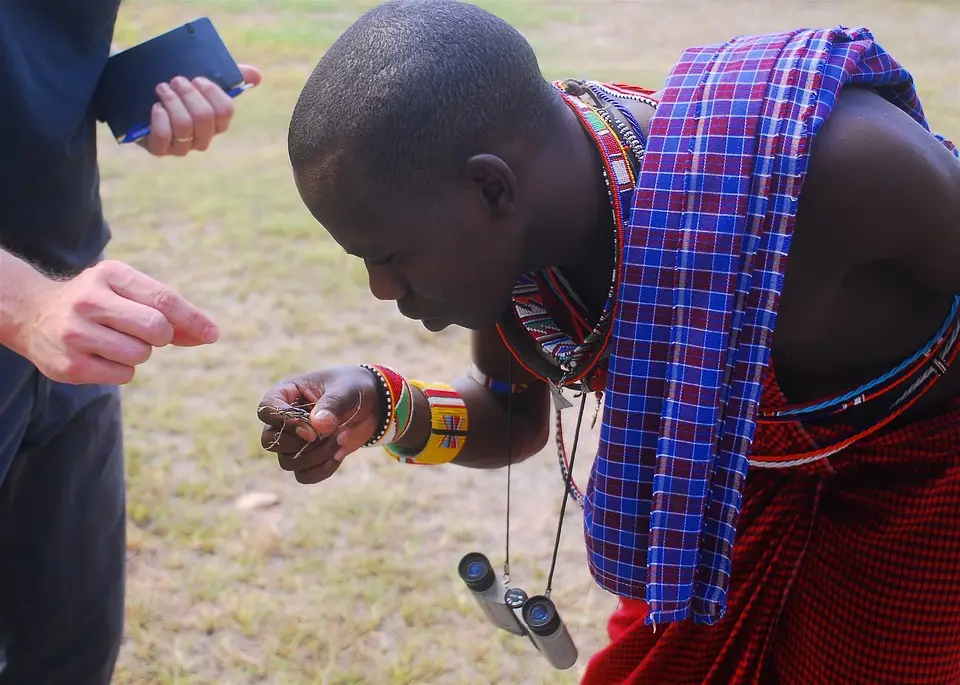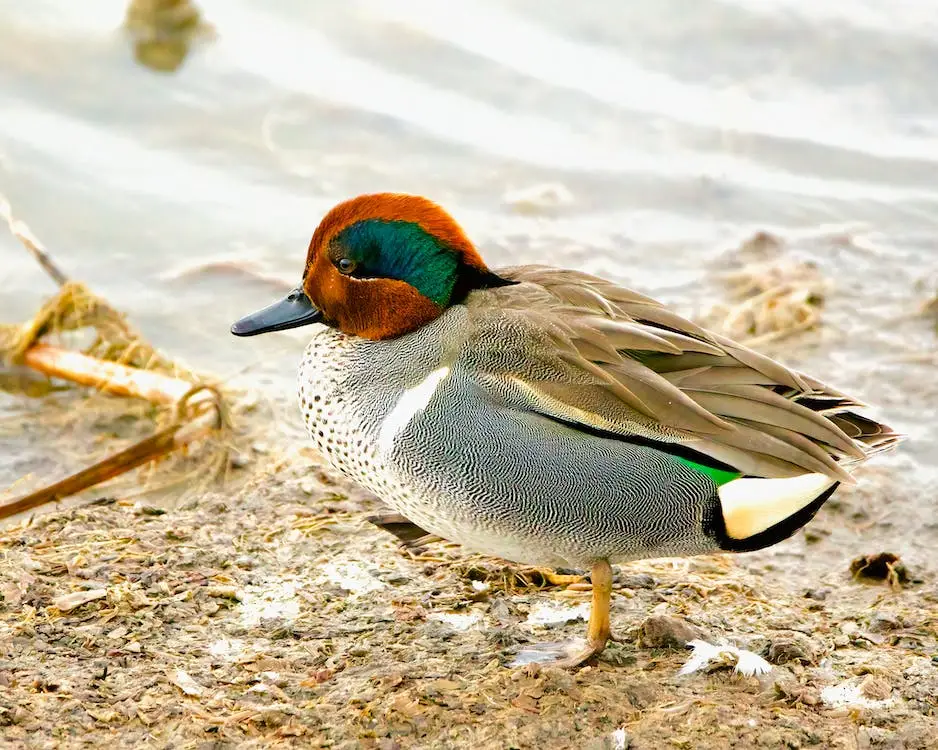We used the latest data and insights to identify the Highest paying zoology jobs so that you can learn and earn more.
Zoology is a fascinating field of study that takes you out of the classroom and into the wild. Whether you want to work with animals in a zoo or if you’re more interested in researching them in the lab, zoology is a rewarding career path.
But how much do zoologists make? That’s what this article will help you figure out. In this blog post, we’ll look at some of the highest-paying zoology jobs to give you an idea of what kinds of jobs are available for people with zoology degrees.
Statistics are extracted from data provided by the Bureau of Labor Statistics (BLS), Payscale, and other top job websites.
Here’s what you need to know about zoology jobs and salaries.
Here is a video summary based on this article
Similar Articles:
- 10 Highest Paying Journalist Jobs to Consider
- 10 Highest Paying Soil Science Jobs to Consider
- 10 Highest Paying History Jobs to Consider
Table of Contents
#10. Snake Venom Milker

How much do they get paid?
- Source: Glassdoor
- Low Range: $24,000 per year
- High Range: $55,000 per year
- Median Pay: $36,239 per year
What do they do?
Snake venom is a mixture of toxins that helps snakes to kill their prey. Some of these substances can be used in medical research projects.
A snake venom milker help researchers obtain venom from a rare snake species or monitor the health of captive snakes to ensure they’re healthy enough for milking.
What degrees and skills are usually required?
Employers hire candidates with a background in biology or chemistry to become snake venom milkers. The job requires you to have a knowledge of reptiles and the ability to handle dangerous snakes safely.
You’ll also need experience with animal handling techniques such as restraint and immobilization.
Who’s hiring for this job?
Snake venom milkers work in laboratories, zoos, and wildlife rehabilitation centers. Organizations that raise venomous snakes for medical research purposes may also hire snake venom milkers.
What is the best way to get this job?
You can volunteer to work at a zoo or animal sanctuary to get your foot in the door. After gaining experience with snakes, apply for jobs requiring you to milk snakes’ venom.
What is it like to be a snake venom milker?
#9. Wildlife Biologist

How much do they get paid?
- Source: Payscale
- Low Range: $36,000 per year
- High Range: $78,000 per year
- Median Pay: $50,234 per year
What do they do?
Wildlife biologists are zoologists who go into the field and study wildlife. They form an important link between research and conservation. These professionals ensure animals are protected throughout their natural habitats.
What degrees and skills are usually required?
To become a wildlife biologist, you’ll need at least an undergraduate zoology degree lor an advanced one in wildlife biology. Employers prefer candidates who can handle the physical demands of working outdoors.
You can get the necessary training through an internship or apprenticeship program. To advance in this field, you enroll for graduate training to gain further scientific knowledge.
Who’s hiring for this job?
Wildlife biologists work in many different places, including zoos and aquariums. They might also work for state or federal agencies or private organizations that are concerned with conservation.
What is the best way to get this job?
After college, it’s important to get some experience in the field. Volunteer opportunities are available at zoos, nature centers, and conservation organizations where you can learn about different species of animals and get hands-on experience with them.
With these qualifications, you’re ready to take the next step and become a zoologist. Be on the lookout for job openings and apply for them.
You might be able to find a position at a zoo or wildlife refuge, where you can work with animals, help care for them and educate people about the importance of conservation.
What is it like to be a wildlife biologist?
Similar Articles:
- 10 Highest Paying Criminal Justice Jobs to Consider
- 10 Highest Paying Management Jobs
- 10 Highest Paying Commerce Jobs to Consider
#8. Marine Mammal Trainer

How much do they get paid?
- Source: ZipRecruiter
- Low Range: $20,500 per year
- High Range: $92,000 per year
- Median Pay: $50,441 per year
What do they do?
A marine mammal trainer is an expert in animal behavior. They work with marine mammals such as dolphins, sea lions, and whales to teach them behaviors that are useful to the trainers’ research or entertainment purposes.
What degrees and skills are usually required?
You don’t need a degree to become an animal trainer, but it can help. Many marine mammal trainers have a bachelor’s degree in marine biology and related fields. Additional certifications in animal training can also help you find a job in this field.
Who’s hiring for this job?
Marine Mammal Trainers work in a variety of settings. Some marine mammal trainers work in aquariums and amusement parks, where they train animals for shows and displays. Others work at research facilities studying marine mammals’ behavior and biology.
What is the best way to get this job?
To get this job, you’ll need to be able to work with a variety of different marine mammals, know how to train them, and care for them. You also need to have plenty of patience, as animals can be unpredictable.
You can start by gaining hands-on experience with marine mammals at aquariums, zoos, and other facilities.
After that, you’ll need to complete a training program at a facility that trains animals for entertainment or research purposes. Keep in mind that not all states allow the use of marine mammals for entertainment or research purposes, so make sure this is legal in your area before applying for a job.
What it is like to be a marine mammal trainer?
#7. Ecologists

How much do they get paid?
- Source: Payscale
- Low Range: $40,000 per year
- High Range: $78,000 per year
- Median Pay: $51,989 per year
What do they do?
Ecologists are scientists who study the relationships between organisms and their environment. They study the dynamics of ecosystems and how they change over time, focusing on how these changes affect the lives of plants and animals within them.
Ecologists use various methods in their research, including computer modeling, field observation, and experimentation.
What degrees and skills are usually required?
These scientists have a bachelor’s degree in ecology or a related field, such as animal biology. They may also have a master’s degree in their field of study. Ecologists should be able to analyze data, interpret results, and communicate their findings in a clear and concise manner.
Who’s hiring for this job?
Ecologists typically work for government agencies, environmental organizations, or consulting firms. You may also find employment with private industry as an ecologist who works with companies to improve their environmental impact and reduce waste.
What is the best way to get this job?
You’ll need a bachelor’s degree in ecology or a related field such as biology or zoology. You may also want to consider earning an advanced degree to work as an ecologist in a university or scientific research facility.
What is it like to be an ecologist?
Similar Articles:
- 10 Highest Paying IT Jobs to Consider
- 10 Highest Paying Programming Jobs to Consider
- 10 Highest Paying Forensic Science Jobs to Consider
#6. Biology Teachers

How much do they get paid?
- Source: Glassdoor
- Low Range: $35,000 per year
- High Range: $82,000 per year
- Median Pay: $53,731 per year
What do they do?
Biology teachers are professionals who teach biology and related sciences at the high school and college levels. They instruct students on how to apply scientific principles to their studies of living organisms and their environments.
What degrees and skills are usually required?
Biology teachers typically need a bachelor’s degree in biology or education for teaching certification and experience working with students. They also need professional development training to stay up-to-date on teaching methods and materials used in science classrooms.
To advance in this field, biology teachers should pursue a master’s degree in education. They can also earn certification from professional organizations and attend conferences to learn about new instructional methods and materials.
Who’s hiring for this job?
These teaching professionals work in a variety of settings, including public and private schools. They may also work for higher education institutions such as colleges and universities.
What is the best way to get this job?
To get this job, ensure you meet the requirements of your state and the school district where you are applying. In most cases, biology teachers need a bachelor’s degree in biology, teaching certification, and experience in the classroom.
Should you become a biology teacher?
#5. Conservation Biologist

How much do they get paid?
- Source: ZipRecruiter
- Low Range: $18,000 per year
- High Range: $106,000 per year
- Median Pay: $55,860 per year
What do they do?
Conservation biologists protect wildlife and ecosystems. They conduct research projects to find ways to help endangered species. These professionals also act as advocates for the protection of our environment.
What degrees and skills are usually required?
A bachelor’s degree in environmental science or agriculture is enough to get an entry-level position in this field.
You can also get a master’s degree in conservation biology or ecology to advance your career. In addition to education, you’ll need strong communication and problem-solving skills.
Who’s hiring for this job?
Conservation biologists work in zoos, aquariums, government agencies, and non-profit organizations.
What is the best way to get this job?
To get into this field, you may need to be experienced in a related field, such as wildlife biology or forestry.
Once you’ve got an entry-level job in conservation biology, you can work your way up by taking on more challenging projects and gaining new skills.
Should you become a conservation biologist?
Similar Articles:
- 10 Highest Paying Geography Jobs to Consider
- 10 Highest Paying Aviation Jobs to Consider
- 10 Highest Paying Insurance Jobs to Consider
#4. Animal Nutritionist

How much do they get paid?
- Source: Payscale
- Low Range: $48,000 per year
- High Range: $85,000 per year
- Median Pay: $56,685 per year
What do they do?
An animal nutritionist is responsible for determining the nutritional needs of animals in zoos, aquariums, and conservation centers. They conduct research to determine:
- what types of food an animal needs.
- how much food it requires.
- if there are any nutritional deficiencies.
Animal nutritionists also work with veterinary professionals to ensure that all animals are fed properly.
What degrees and skills are usually required?
These animal scientists have a degree in animal health and behavior. You can also pursue a degree in animal science and acquire relevant certifications.
An animal nutritionist should have experience in the field and a passion for helping animals. They need to be able to work with many different types of animals and have excellent communication skills.
Who’s hiring for this job?
Animal nutritionists work in zoos, veterinary offices, animal shelters, and other places that care for animals. Some work in research facilities or universities.
What is the best way to get this job?
You can secure a job with the proper training and experience. Internship opportunities are available for those who want to gain experience in the field.
Once you have the qualifications, you can apply for jobs and set up an interview. You will need to be able to present yourself professionally and have strong communication skills.
What is it like to be an animal nutritionist?
#3. Ichthyologist

How much do they get paid?
- Source: Comparably
- Low Range: $39,180 per year
- High Range: $97,390 per year
- Median Pay: $59,680 per year
What do they do?
An ichthyologist is a specialist who studies fish. These zoologists spend their time in the wild and lab, observing and documenting various freshwater and saltwater fish species.
What degrees and skills are usually required?
While there are no formal educational requirements for this job, it is important for an ichthyologist to be trained as a biologist to conduct proper research on their chosen topic of study.
Therefore, you should consider taking zoology or marine biology classes at a university level. You’ll need advanced degrees to become a professor or research scientist.
Who’s hiring for this job?
These professionals work at universities and research labs, where they study and write about fish. They may also work for zoos or aquariums, where they care for the animals in their care.
What is the best way to get this job?
You can begin by volunteering at a local aquarium or zoo to get started in this field. This will give you hands-on experience with the animals. It will also help you decide if this is truly a career path that interests you.
With the necessary qualifications, you can begin applying for jobs in this field. A college degree is a must, but if you have an advanced degree, it will help you get ahead of the pack.
What is it like to be an Ichthyologist?
Similar Articles:
- 10 Highest Paying Jobs For Business Administration Majors to Consider
- 10 Highest Paying Cyber Security Jobs to Consider
- 10 Highest Paying Jobs For Statistics Majors to Consider
#2. Veterinarian

How much do they get paid?
- Source: Payscale
- Low Range: $66,000 per year
- High Range: $124,000 per year
- Median Pay: $89,149 per year
What do they do?
Veterinarians are responsible for the health and treatment of animals. They also:
- train and supervise other animal healthcare workers.
- make recommendations on how best to care for specific species or communities of animals.
- work with scientists researching diseases and treatments for animal populations.
What degrees and skills are usually required?
Veterinarians need a veterinary medicine degree from an accredited college or university. Many states require that you pass licensing exams after graduation before beginning your career as a vet.
Employers also prefer that you have some experience with animals before entering the field.
Who’s hiring for this job?
These professionals work in clinics, animal shelters, and research laboratories. They may work directly with animals or assist in their care by handling tasks such as administering medications and performing laboratory tests.
What is the best way to get this job?
With the right certification, you can get experience through an internship, volunteer work, or working with a veterinarian. It’s important that you keep up-to-date on the latest developments in health care. You can do this by taking continuing education courses.
Revamp your resume to include any experience you have with animals. Include your volunteer work and any certificates or licenses you have earned. When applying for jobs, highlight these skills and experiences in your cover letter.
What is it like to be a veterinarian?
#1. Herpetologists

How much do they get paid?
- Source: Glassdoor
- Low Range: $71,000 per year
- High Range: $178,000 per year
- Median Pay: $111,932 per year
What do they do?
Herpetologists study reptiles and amphibians. They’re concerned with the biology and ecology of these animals. These scientists may work in a laboratory, collecting data on existing species.
Some herpetologists also work in the field, studying wild reptiles and amphibians. They can also correct population decline by reintroducing captive-bred animals into their natural habitats.
What degrees and skills are usually required?
Most employers prefer a bachelor’s degree in biology, zoology, or a related field. Graduate degrees in herpetology-related fields can help you get a job in a scientific research facility or university.
Herpetologists also have soft skills like communication, problem-solving, and teamwork that are important to their careers.
Who’s hiring for this job?
Herpetologists work for government agencies, universities, private research facilities, and zoos.
What is the best way to get this job?
If you want to work as a herpetologist, it’s important to take courses that focus on reptiles and amphibians. You may also want to gain experience volunteering at a wildlife rescue center or zoo, where you can learn more about reptiles and amphibians.
What is it like to be a herpetologist?
Similar Articles:
- 10 Highest Paying Jobs For Food Science Majors to Consider
- 10 Highest Paying Meteorology Jobs to Consider
- 10 Highest Paying International Relations Jobs to Consider
Conclusion
Zoology offers a wide range of career options, but some are better than others. If you want to make the most money, it’s important that you choose a field that pays well and is in high demand. The best way to do that is by researching what careers are most in demand and paying attention to the pay scales associated with those careers.
If you’re unsure about what field might be right for you, don’t worry. Many different paths within zoology can lead to great careers and high salaries. Remember to be open-minded when considering what type of job might fit your needs.



I want a job as zoologist
Iam a student of zoology and chemistry and I need a mentor in this field cause I never heard of it but I have just loved the way u have explained
I’m Dr Asif Raza soomro PhD in zoology I want a job biology teacher I have teaching experience in zoology 10yeard teaching experience
All the best!